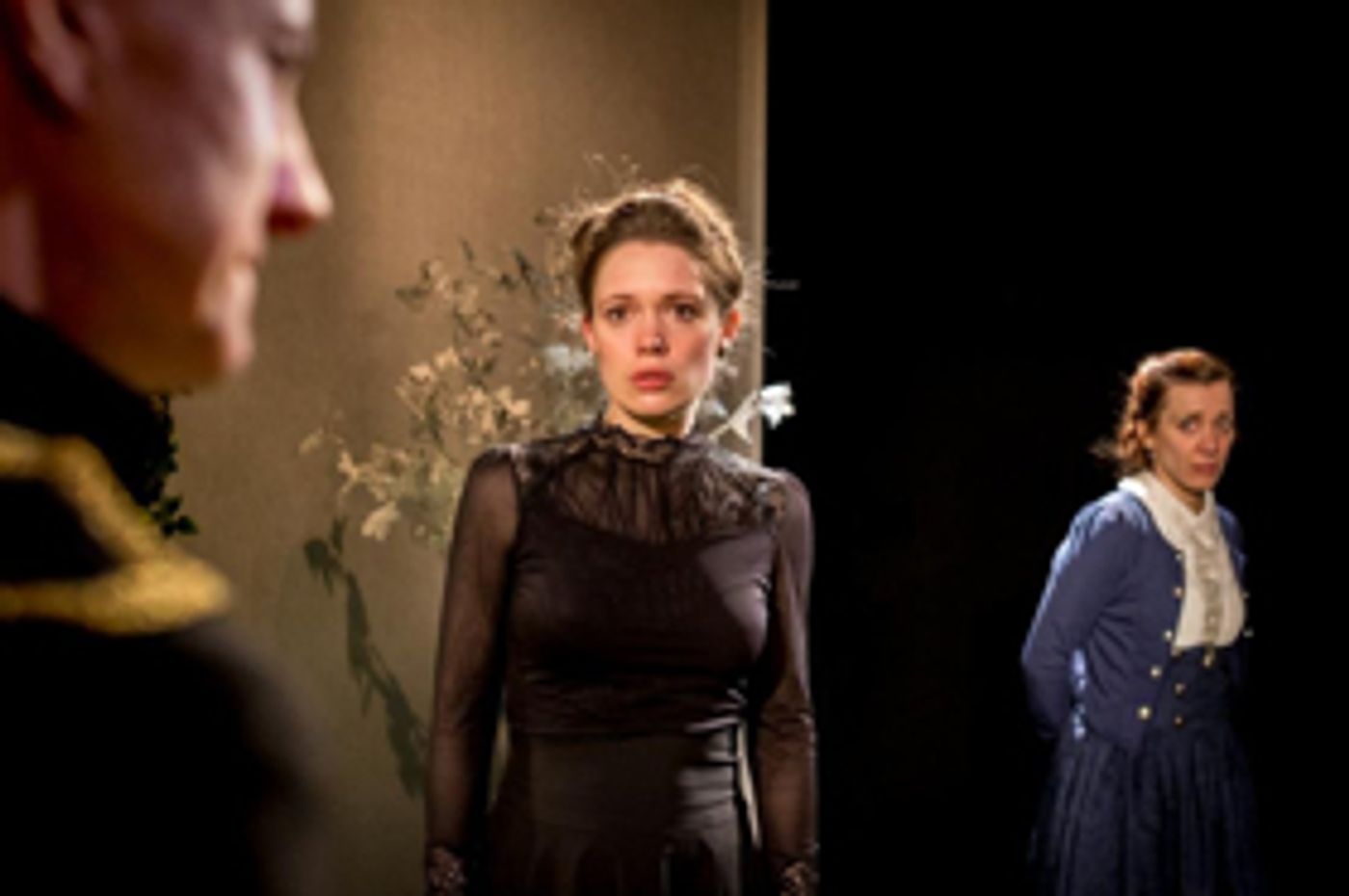Review: THREE SISTERS, Brockley Jack Studio Theatre

![]() Ross McGregor (if we forgive him a "gotten" or two) has adapted Chekhov's Three Sisters with panache and energy, excavating the psychological heart of the play rather than becoming hung up on the longing for a literal Moscow.
Ross McGregor (if we forgive him a "gotten" or two) has adapted Chekhov's Three Sisters with panache and energy, excavating the psychological heart of the play rather than becoming hung up on the longing for a literal Moscow.
There are times when the pudding is a little over-egged, but one can allow such moments to slide past and simply look at the visual treat bestowed on us by designer Odin Corie, the set bathed in beautiful light by Ben Jacobs - just about the best such work I've seen in this theatre.
More than ever, "Moscow" becomes an ideal, an exotic other, the greenest of grass for which the sisters pine. It's the lives they could have lived, played out in glorious technicolor in their imaginations, impervious to the reality check offered (and brushed aside) by the world-weary soldier, Vershinin. The sisters fool themselves, reinforcing their own mythologies about their forsaken home, the heart overpowering the head.
Perhaps they need the tangible iconography of a blue passport to make concrete all that wishful thinking too.
If that's the pull towards Moscow, given the fact that these sisters are bright, cultured women - albeit yet more examples, were we to need any, that high intelligence and good judgement seldom go hand in hand - their provincial home needs to be made as excruciating a place as possible. And it is - at risk of some characters toppling over into caricature. There's plenty of push to drive their ennui.
Pearce Sampson and Conor Moss come close to broad sitcom, bickering as Solyony and Baron Tuzenbach, the rivals for Irina (who, naturally, can't stand either of them). Sampson invests his misfit with an almost Tourettish demand for attention via a shyness overcompensated by misplaced remarks, while Moss makes the Baron little more than a gawky schoolboy whom it is hard to believe ever called out Solyony, still less duelled with the hothead. Of course, they have to be so appalling if we are to commit fully to Irina's hatred of her home.
While there's good work in supporting roles - Spencer Lee Osborne becomes almost physically smaller as he wilts under the thumb of Hannah Victory's self-serving Natasha, the insecurity of the lower middle class given breath; the play is not called Three Sisters for nothing.
Cornelia Baumann's Olga looks into the mirror and sees a woman in the process of resigning herself to her fate and a life of "doing the decent thing' as a result. She works hard at the school and does the decent thing by her ageing housekeeper, Anfisa (a nice turn from Susan Baskerville).
Her contemptuous looks towards Natasha speak first of the unattractive snobbishness the sisters share, but then of a disapproval of the cruel, shameless selfishness Natasha displays, in the face of which Olga is helpless. Baumann captures her growing despair at Olga's cornering by her own moral compass with subtlety and grace.
Claire Bowman's Masha teeters on the verge of a nervous breakdown, her appallingly unsuitable match with Kulygin (Stephen MacNiece doing weak, stupid and educated very well) promoting a neurosis that bubbles to the surface unbidden and sudden.
That said, wearing the most exquisite of dresses in a production in which the costumes convey much of the plot unassisted, one gets exactly what Toby Wynn-Davies' Vershinin sees in her. If you have a thing for that kind of woman - well, you're going to fall for Masha all day, every day. You can take my word for that...
Victoria Llewellyn starts as pure as the driven snow she resembles in her white frock and blonde tresses, and it's in her dreams that Moscow is most vivid. As she slowly "becomes" Olga, your heart goes out to her, as emotionally starved as the serfs were physically starved in the vast country of Russia, within which so few seemed (seem?) to be able to find a comfortable home.
Chekhov, as ever, gives us comedy provoking the saddest of smiles, heroes who aren't really heroic and villains who aren't really villainous and that forensic examination of what it is to be human that makes you question the characters and then yourself.
At the thick end of 160 minutes, this Three Sisters reminds me of some extended dinners I've had in ex-Soviet republics with lots of toasts with excellent vodkas. You need some time to recover from it all, but you're so much richer as a result.
Three Sisters continues at the Jack Studio Theatre until 14 April.
Photo Davor Tovarlaza
Reader Reviews
Videos

